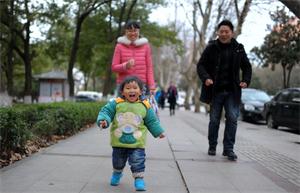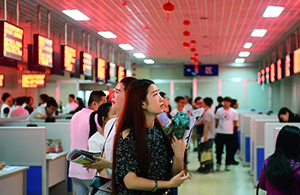慢就业 (màn jìuyè): slow employment
(China Daily) Updated: 2016-10-18 07:41"Slow employment" refers to the phenomenon of college students who don't get a job or go on to further studies after they graduate.
This phenomenon is not new, as in some foreign countries some young people choose to take a gap year after graduation in which they travel or devote themselves to voluntary work. Choosing to do something else rather than working or studying may be a good way for college students to gain life experience and learn skills unavailable at college.
But in China, the slow employment phenomenon is not through choice but because of a shortage of opportunities as a result of the country's economic slowdown. Graduates have found it increasingly difficult to find jobs in recent years.
Statistics show that there are more than 7 million college graduates in China this year, and the new job-hunting population may be 10 million if students returning from overseas and former unemployed graduates are also taken into count.
Under such circumstances, advocating slow employment covers up a real social problem. No matter what kind of new term some people create, it won't change the severe and seemingly increasing unemployment in the country.
In fact, such rhetoric may even intensify social contradictions and undermine social harmony.
Both the graduates and the authorities should directly face up to the unemployment problem, and the latter will have to take more effective measures to help college graduates find jobs, instead of playing word games.
- Bridging the gap between skills and employment
- Premier's efforts on stable and high-quality employment
- Looking at the evolution of employment
- Obsession with employment rate wrong
- Better employment benefits will make for much happier employees
- Xi stresses employment of demobilized military officers
- Employment key to gender equality, say women's advocates












